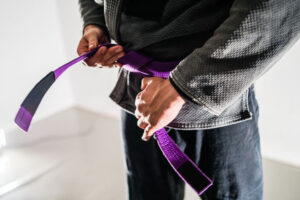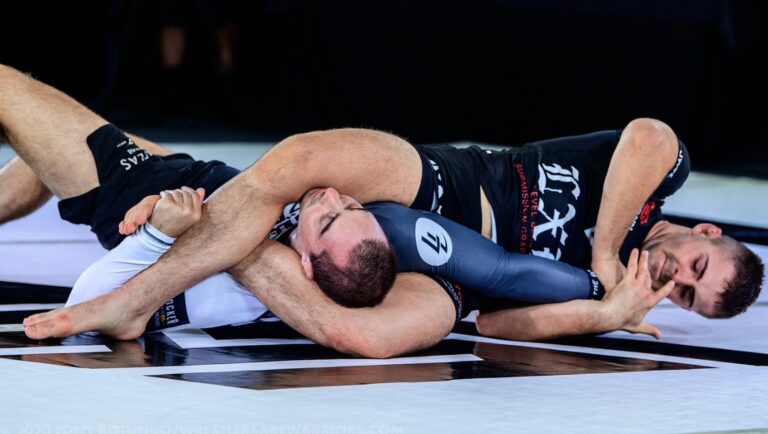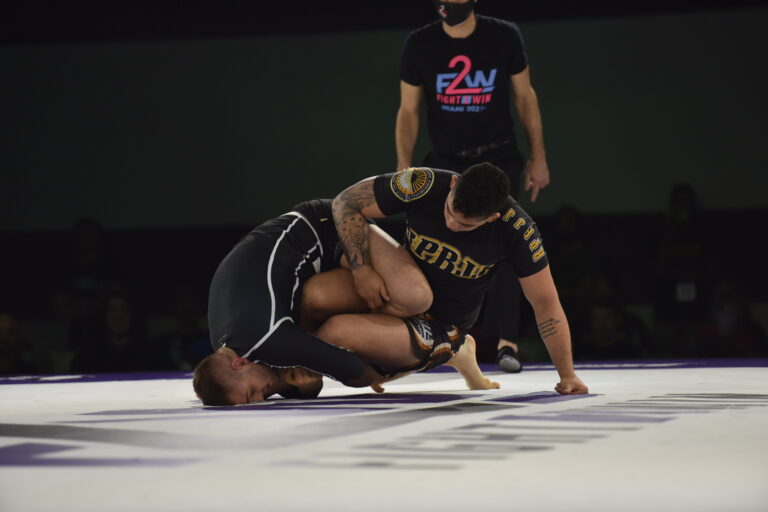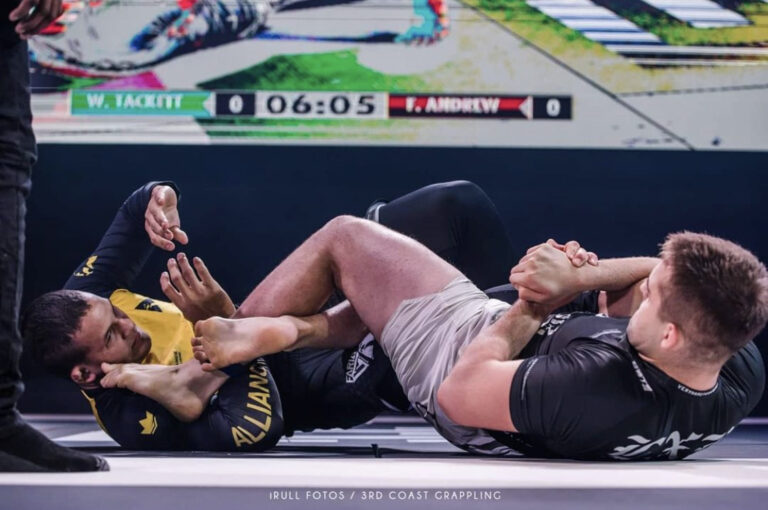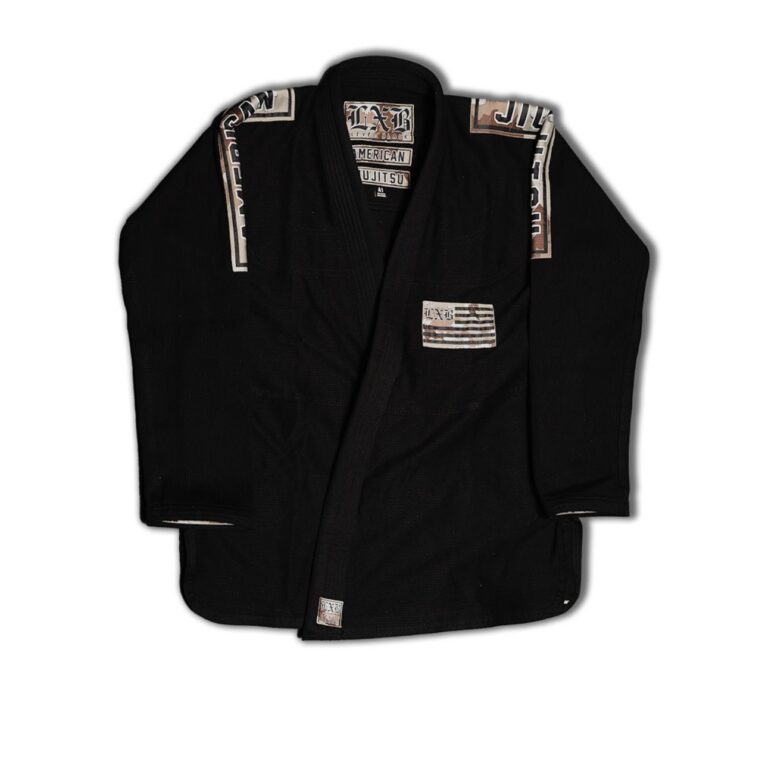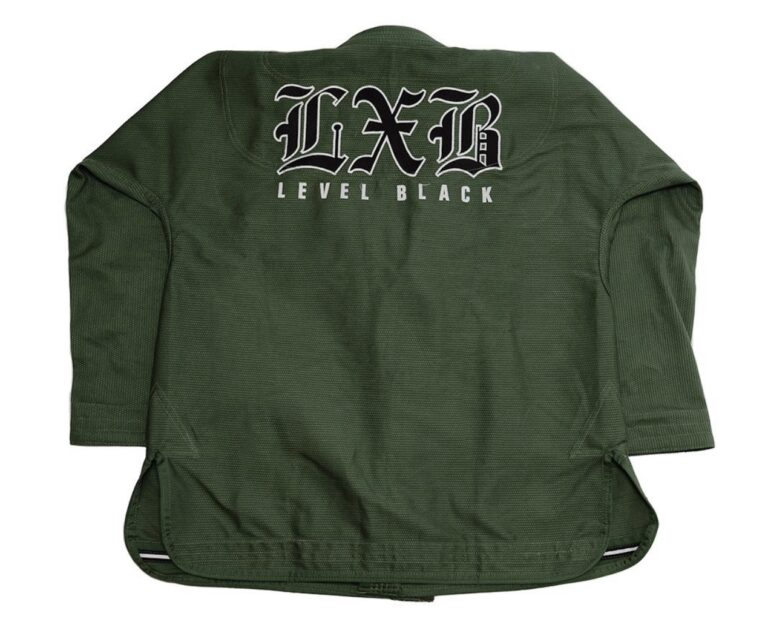Ask A BJJ Black Belt: Are BJJ Chokes Dangerous?
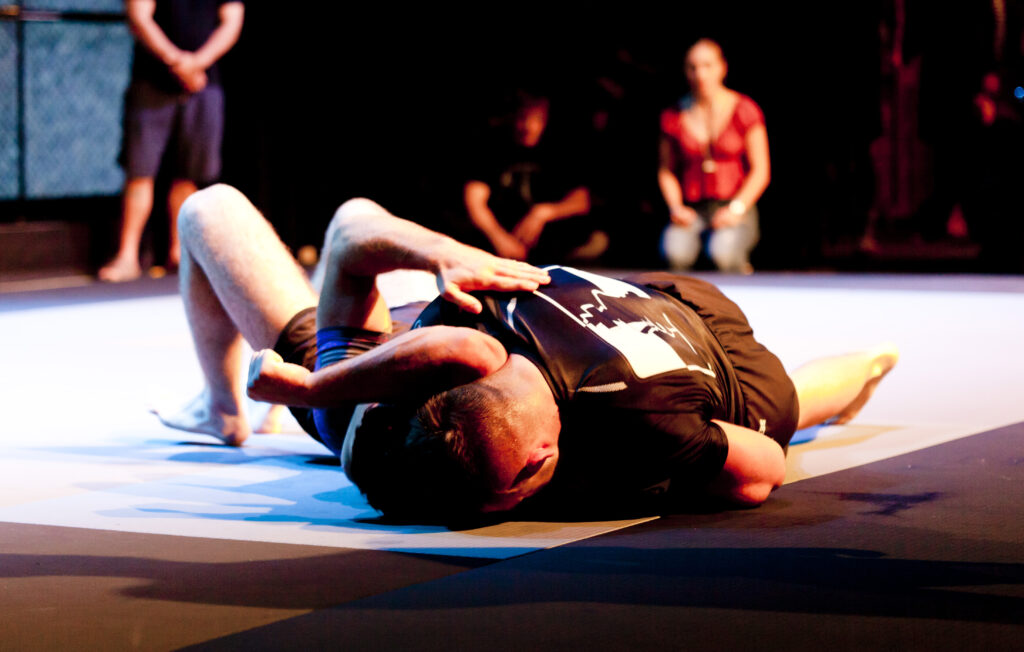
The fear of getting choked out in BJJ is a scary thought. Even if you plan to tap out before getting choked out, there is no guarantee you will not get choked out in BJJ. Though rare, getting accidentally choked out in BJJ can happen. This may make you wonder how dangerous BJJ chokes are.
BJJ chokes can be dangerous, especially if the attacker has the intent to harm their opponent or does not know when to let go. The longer a choke is held, the greater the risk of incurring permanent damage and even death. It is always best to tap out before being rendered unconscious.
That said, the likelihood of being severely injured by a choke at your local BJJ academy is very rare. Of course, like with any sport, there is always some level of risk to injury. It is important to understand how BJJ chokes work and why you should tap when you are caught in a choke.
Learn To Use BJJ Chokes Responsibly
It is dangerous to use BJJ chokes irresponsibly. Never, purposefully let someone choke you unconscious or purposely choke someone else unconscious with a BJJ choke. Whether or not it is appropriate for a self-defense situation is another story but BJJ chokes can be very dangerous.
Believe it or not, there has been a problem with ( mostly young ) people choking each other out for “fun”. This of course is not a good idea and is very dangerous. At a BJJ academy, however, you should be taught appropriately about BJJ chokes. In this environment, learning BJJ chokes are much less dangerous.
In the following article, we will discuss the various effects of chokeholds on the human body. We will also be going over different types of chokehold techniques and how they are administered.
Lastly, we will discuss the rules and cautionary considerations when grappling to ensure maximal safety while still enjoying the art of BJJ.
The Dangers of Chokes in BJJ Competition
Sport Brazilian Jiu-Jitsu is a submission and point-based form of grappling that begins with both opponents standing but is primarily contested on the ground most of the time.
A BJJ match can be won either by an accumulation of points—awarded for positions of dominance, sweeps, and guard passes or by causing your opponent to submit by applying a submission hold, which causes them to “tap,” signifying they are no longer physically able or willing to compete.
However, sometimes a competitor will get caught in a submission hold and fail to tap. These will typically happen for one of three reasons:
- The player was caught off guard and did not have ample time to submit before being choked unconscious.
- The player feels they still can escape the choke and hold out too long for an opportunity to do so.
- The player’s ego compels them not to submit
Whatever the reason, this is when a severe injury is most likely to occur.
Tap Or Nap As They Say
The best thing you can do is not let your ego get in the way. If someone has a legit submission hold on you then spare you and your opponent the trouble and just tap out.
To add a layer of protection BJJ matches will also have referees that can call the match at any time. Part of their job is to make sure that the match is ended if someone does get choked unconscious.
All that being said, it is unlikely that you will get choked unconscious in a BJJ competition if you simply tap out. One rare occasion that might happen is when your limbs are compromised and you are physically unable to tap.
This is when you hope to have a great referee watching closely. It does happen but these instances are rare.
Dangers Of BJJ Chokes In a Street Fight
So far we have talked about the dangers of being choked in sport BJJ. However, if you get attacked or attack someone in a fight then BJJ chokes can be very dangerous.
Someone who uses a BJJ choke in a street fight with the intent of hurting their opponents can cause serious damage. If the attacker holds on the choke for a long time it could result in brain damage or even death.
Using a BJJ choke for self-protection might be necessary in rare instances. However, you must understand that they can be very dangerous especially when held past the point of unconsciousness.
The Physiological Effects of Being Choked Out
Anatomically speaking, the arteries that supply blood to the head and brain are known as the Common Carotid Arteries and are large arteries that run up both the left and right of the neck.
Certain types of chokes in BJJ have the capability of compressing these arteries to the point in which blood flow is cut off, and unconsciousness ensues within seconds.
In general, the longer the blood supply is cut off from the brain, the greater the risk of causing permanent damage and death. Brazilian Jiu-Jitsu is universally practiced in good faith, and as such, chokes are always released the moment an opponent is rendered unconscious.
It is a fact that after five continuous minutes of oxygen deprivation, the cells of the brain begin to die, leading either to severe brain damage or fatality, but what are the dangers of cutting off the carotid arteries for just a few seconds?
When the brain becomes unable to receive blood due to the blockage of the carotid arteries, a signal is sent to the heart, which tells it to slow down and reduce its stroke volume to alleviate the excessively high blood pressure.
This effect does have the potential to cause a flatline and consequent cardiac arrest. However, this is relatively unlikely to occur, assuming the chokehold is relinquished within a few seconds, and the individual has no heart-related ailments.
Anecdotal Evidence Regarding the Dangers of BJJ Chokes
Judo is a martial art form that is derived from Japanese jujutsu. The sport of Judo like BJJ, incorporates chokeholds.
Surveys conducted showed that not a single death in Judo had been attributed to the use of chokeholds in the 100+ years since the sport’s inception.
In addition, this study concluded that sportive choking appeared to be safe. Only .05 percent of the participants had ongoing symptoms from being choked out.
To be clear, this is talking about combat sports such as BJJ, MMA, and judo.
The Potentiality of Indirect Injury Occurrence
Whenever discussing the potentially dangerous effects of BJJ chokes, the first thing that commonly comes to mind is how blood and oxygen deprivation may negatively affect the brain, but often overlooked are the indirect injuries that may be sustained during the onset of unconsciousness.
These injuries would likely result from falling and include: hitting your head, resulting in a concussion, the breaking or dislocation of bones due to awkward landing, and the tearing of muscles for much the same reason.
Different Chokes in BJJ
In the sport of BJJ, there are virtually unlimited ways in which a choke may be applied. Some chokes, like the type, mentioned previously, directly cut off the blood flow to the brain. These are referred to as “blood chokes.”
Conversely, other chokes may be slightly hindered due to the presence of an arm or hand preventing full contact with the neck. BJJ players refer to these as “air chokes” because while they may interfere with breathing, they do not result in unconsciousness as quickly.
Preventing Damage From BJJ Chokes
The spirit of Jiu-Jitsu is founded upon honor, respect, integrity, and humility. Because of the strong honor culture surrounding BJJ, it is unlikely to encounter malicious competitors.
The best way to prevent hurting your opponent with a choke is to release the hold immediately upon the presence of a “tap.” If you do not feel them tap but notice they have gone limp and ceased resisting, immediately release the hold.
If a referee signals you to stop at any time, follow their command. The same rule applies not only to chokeholds but to limb locks as well.
If you are rolling or sparring in the gym, do not attempt to become overly aggressive with your training partner. The purpose of rolling is to hone your skills, not to assert your dominance or defeat your partner, so leave your ego out of the equation.
In Summary
The goal of this article was to answer whether or not BJJ chokes are dangerous. To provide a definitive answer, we first must acquaint ourselves with the rules and regulations of the sport and the science behind the use of chokeholds in the Jiu-Jitsu competition.
While it would be dishonest to claim that BJJ chokes are without risk, the overwhelming body of anecdotal evidence shows us that chokes released quickly have little if any long term detriment to the recipient. The main thing is to know when to catch, and never be ashamed to tap as it can happen to the best of them.
